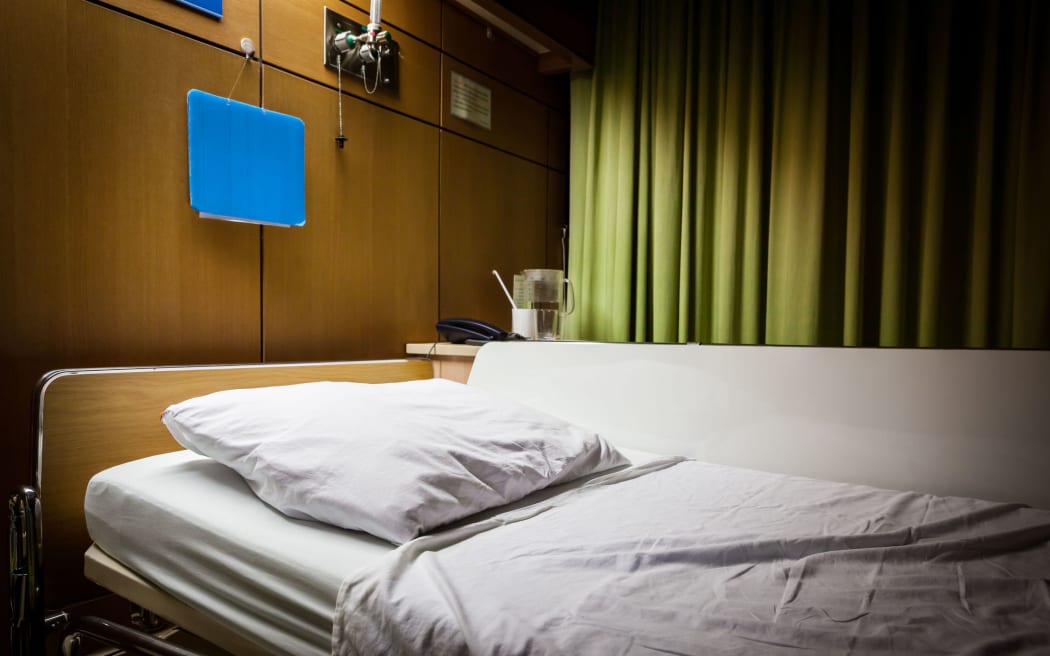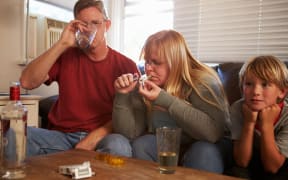Candidates from both major parties are joining calls for beds to help rehabilitate addicts in Tauranga and western Bay of Plenty.

Photo: 123RF
Bay of Plenty District Health Board said there were no residential drug and alcohol rehabilitation facilities in the district aside from a single detox bed in Whakatāne Hospital.
A Tauranga mother whose son has addiction and mental health issues was among those calling for rehabilitation beds in the city.
She said her son had moved to Auckland to gain a higher place on a waiting list for a residential treatment bed, as there were limited spaces for people from other regions.
"He has to reside in Auckland, so he had to move from my support in Tauranga to Auckland, which is really expensive, to even get on the wait list."
The mother said addicts like her son could relapse while they were waiting for beds.
"He can still use while he's waiting, making more mental health issues: anxiety, depression, not to mention stress on the family."
She said her son had now been waiting six months for a bed.
"My son wants to give up, he just wants some action, he wants some help and he's just not getting it.
"And they'll turn around and say 'but there's help in the community, you can go to NA or AA', but if you're unwell they need residential treatment."
It's a familiar story for Erin Scarlett O'Neill, the founder of Brave Hearts, a support group for families of meth addicts in Tauranga.
She said the lack of beds made it difficult for families to be there for loved ones trying to break the habit.
"It does, because families need to be involved in the recovery and it means travel for families either to Hamilton or Auckland or wherever their loved one is so they can be part of the process."
Ms O'Neill said her phone was ringing everyday from people trying to support those with meth addictions.
Bay of Plenty Labour candidate Angie Warren-Clark, who is also the manager of Tauranga Women's Refuge, said she was also seeing more families affected by synthetics, methamphetamine and alcohol.
"Our most prevalent drug is alcohol and we certainly do have a culture of bingeing in this community.
"But certainly what I'm seeing is methamphetamine is out of control, and people are absolutely addicted, their life is being absolutely disrupted."
Ms Warren-Clark said Tauranga needed a residential rehabilitation service, and a supported-living environment for people re-entering the community after treatment.
"It's very lacking in our community, it's what I'm hearing from a lot of people. People deserve the right to be able to rehab in our own community."
National MP for Bay of Plenty Todd Muller said it was not a case of Tauranga missing out, as 36 providers already worked in the addiction sector.
He agreed consideration should be given to providing rehab beds for the city's growing population.
"As the community grows the opportunity is significant here, but people are complex and communities are complex and we have those who are struggling and we've got to make sure that as we grow our services respond to that need."
National has promised $40 million over four years for drug treatment and education, including 1500 more in patient places.
Mr Muller said his understanding was that additional funding was earmarked for the western Bay of Plenty and he believed some of that should go towards rehab beds.
"I can't, as the backbench MP for Bay of Plenty, say that it's definitely going to happen.
"What I can say is that this is a government that has a track record of increasing investment in this area ... having a rehabilitation option for addicted people in Tauranga needs to be part of that mix."
Bay of Plenty District Health Board said it had contracts for residential addiction services with providers in Auckland, Hamilton, Rotorua, Hawke's Bay, and Christchurch and had access to national methamphetamine beds across the country.
It said most alcohol and drug treatment was located within the community and most district health boards did not have residential treatment.






